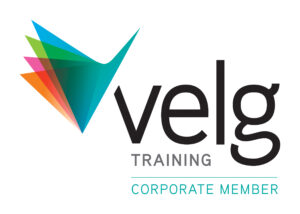Across Australia, construction work accounts for three of the top five most in-demand jobs for 2022. Electrical engineer, construction manager and civil engineer score positions three, four and five.
But how do you get into the right position to land yourself one of these roles? It often comes down to having the right training and accreditations.
In this article, we will explore the top courses available to sign up for which could springboard you into a career you’ve always hoped for.
In Demand Construction Skills in Australia
If you’re hoping to break into the construction industry, there are many in-demand skills needed for specific careers within construction.
Choosing the right course to gain these skills is important, but it all starts with gaining your White Card to show you have completed the mandatory work health and safety training required prior to undertaking construction work.
If you already work in construction and are looking to upskill, there are a variety of ways to become indispensable in your role, from mastering EWP operations to becoming qualified to work at heights.
If you want to explore other avenues other than just construction, there are training courses you can undertake that build on your existing experience. Other industries that require similar skills include working in the mining, drilling or demolition sectors.
Equipping yourself with the right training and licences can set you on the right path to working in these high risk fields, where workers are in demand. For example, we offer training for dogging and rigging which can open many doors for workers in other industries that require these skills.
Having an added layer of training can put you more in demand with your employer, especially if it covers roles they are hiring for already. A great construction worker should have a variety of skills that can be useful to multiple projects.
How to Make Yourself More in Demand in Your Construction Role
Updating your resume with construction training can be the ticket you need to bag yourself a higher paid or more enjoyable role within the industry. For high-risk work and plant operations, certain licences will ensure you’re approved and compliant to take on the job.
If you’re looking for a shorter or more general qualification to add to boost your career prospects, safety training courses are a great option. They cover things such as electrical hazards, confined space training, telehandler operations and workplace first aid.
Which Construction Careers Have High Job Security?
To guarantee the best career opportunities for yourself within the construction industry, you need to think long-term. Some roles offer a greater level of job security than others which can come down to supply and demand, or higher progression levels within that particular speciality.
The construction industry in general is one with higher job security than others since there are always new projects and developments on the go. The key is to become a reliable worker that is always put on the next job after the current project is finished.
To do this, building up your skills and training can give you a better chance to be part of your employer’s staffing plans for the future.
How to Advance Your Construction Career
Working in the construction industry is an incredibly rewarding job. Whether you’re just getting into the industry or want to progress your career, you can learn everything you need to know by enrolling on a variety of training courses.
Construction training courses equip you with the licences, skills and knowledge needed to become competent that will set you up for success.
At Kallibr Training (RTO 32365), our modern training facilities, real equipment and dedicated trainers are here to provide a safe, realistic and supportive training environment.
Our accredited training courses cover a wide range of areas from high-risk training and construction equipment training to safety training and plant operator courses.
Learn more about our courses and training facilities in Brisbane, Sydney and Melbourne here.




